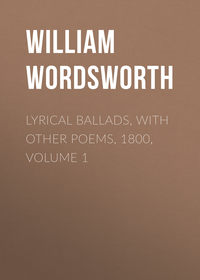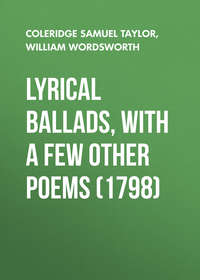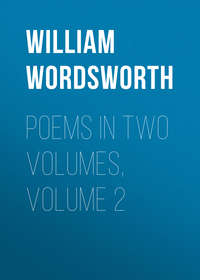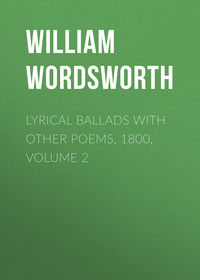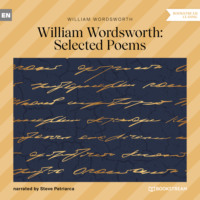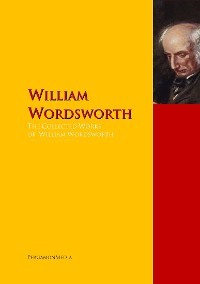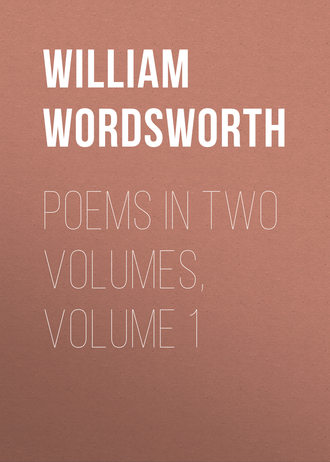 полная версия
полная версияPoems in Two Volumes, Volume 1
23. TO THE MEN OF KENT
October, 1803 Vanguard of Liberty, ye Men of Kent, Ye Children of a Soil that doth advance It's haughty brow against the coast of France, Now is the time to prove your hardiment! To France be words of invitation sent! They from their Fields can see the countenance Of your fierce war, may ken the glittering lance. And hear you shouting forth your brave intent. Left single, in bold parley, Ye, of yore, Did from the Norman win a gallant wreath; Confirm'd the charters that were yours before; — No parleying now! In Britain is one breath; We all are with you now from Shore to Shore: — Ye Men of Kent, 'tis Victory or Death!24October, 1803 Six thousand Veterans practis'd in War's game, Tried Men, at Killicranky were array'd Against an equal Host that wore the Plaid, Shepherds and Herdsmen. – Like a whirlwind came The Highlanders, the slaughter spread like flame; And Garry thundering down his mountain-road Was stopp'd, and could not breathe beneath the load Of the dead bodies. 'Twas a day of shame For them whom precept and the pedantry Of cold mechanic battle do enslave. Oh! for a single hour of that Dundee Who on that day the word of onset gave! Like conquest would the Men of England see; And her Foes find a like inglorious Grave.25. ANTICIPATION
NOTES to the FIRST VOLUME
NOTES
NOTE IPAGE I (9). —To the Daisy. This Poem, and two others to the same Flower, which the Reader will find in the second Volume, were written in the year 1802; which is mentioned, because in some of the ideas, though not in the manner in which those ideas are connected, and likewise even in some of the expressions, they bear a striking resemblance to a Poem (lately published) of Mr. Montgomery, entitled, a Field Flower. This being said, Mr. Montgomery will not think any apology due to him; I cannot however help addressing him in the words of the Father of English Poets.
'Though it happe me to rehersin — That ye han in your freshe song is saied, Forberith me, and beth not ill apaied, Sith that ye se I doe it in the honour Of Love, and eke in service of the Flour.'NOTE IIPAGE 35 (43); line 13. —
"… persevering to the last, From well to better." 'For Knightes ever should be persevering To seek honour without feintise or slouth Fro wele to better in all manner thing.' CHAUCER: —The Floure and the Leafe.NOTE IIIPAGE 37 (45). —The Horn of Egremont Castle. This Story is a Cumberland tradition; I have heard it also related of the Hall of Hutton John an ancient residence of the Huddlestones, in a sequestered Valley upon the River Dacor.
NOTE IVPAGE 58 (64). —The Seven Sisters. The Story of this Poem is from the German of FREDERICA BRUN.
NOTE VPage 63 (71); line 6. —
"… that thy Boat May rather seem To brood on air," &c. &c.See Carver's Description of his Situation upon one of the Lakes of America.
NOTE VIPAGE 112 (120); line 8. – "Her tackling rich, and of apparel high." From a passage in Skelton, which I cannot here insert, not having the Book at hand.
NOTE VIIPAGE 150 (158); line 11. – "Oh! for a single hour of that Dundee."
See an anecdote related in Mr. Scott's Border Minstrelsy.
NOTE VIIIPAGE 152 (160); lines 13 and 14. —
"Who are to judge of danger which they fear And honour which they do not understand."These two lines from Lord Brooke's Life of Sir Philip Sydney.
END OF THE FIRST VOLUME



